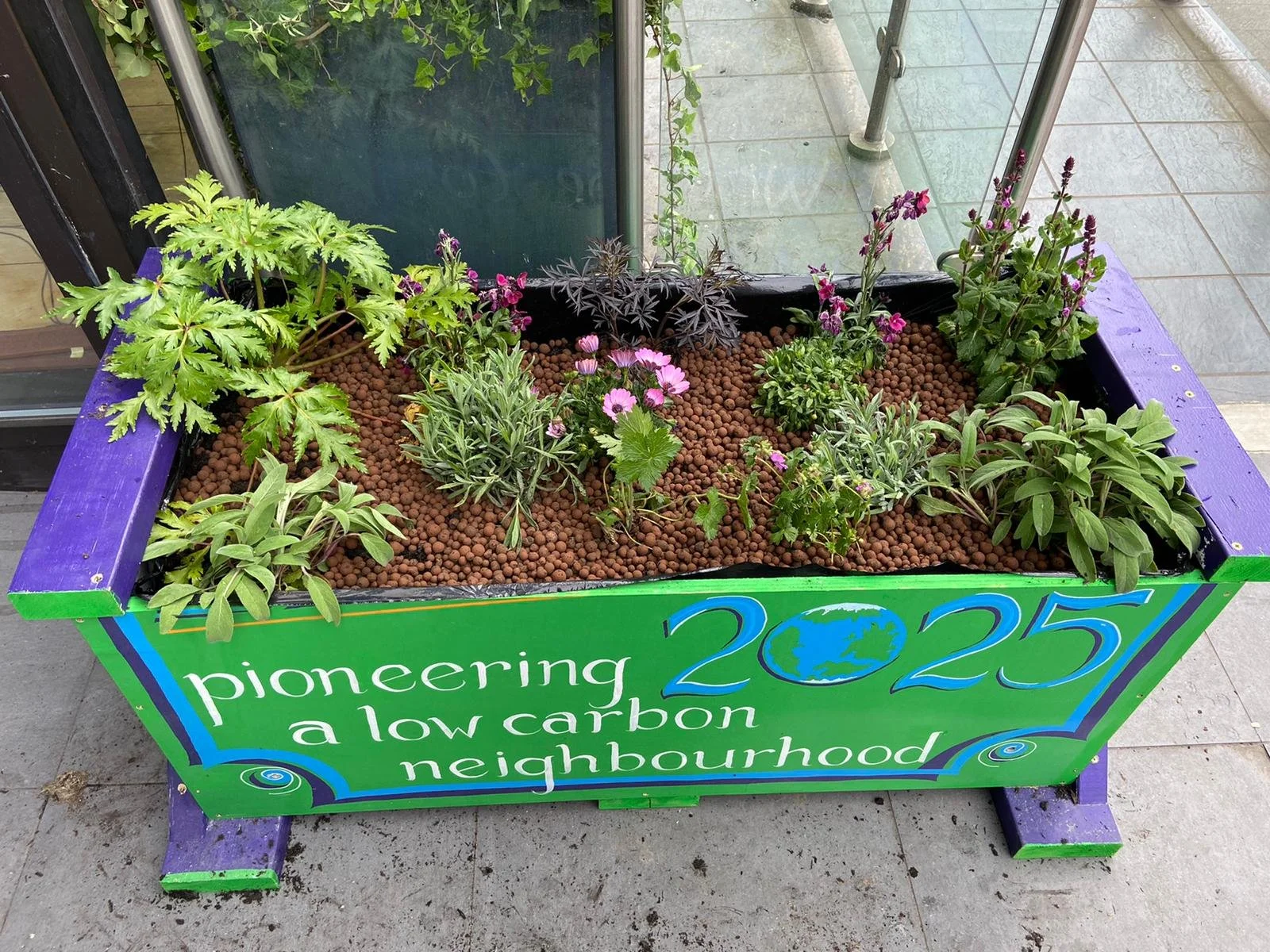the political act of planting plants in a planter
Last Friday 22 April, ‘Earth Day’ was ticked off the global calendar.
On Earth Day it can be difficult not to experience some form of climate or eco-anxiety. We’re constantly reminded of the devastating impact of humanity on the climate and environment, like Google’s earth day time-lapse satellite images showing melting glaciers, deforestation and coral bleaching.
Constant worry about the current and future harm to the environment can sometimes be detrimental to the way we fight the climate crisis. We can feel disempowered, hopeless and unable to take action.
For Earth Day, The Bridge wanted to remind ourselves of the small yet impactful things we can do as individuals and as an organisation. We wanted to contribute to something beautiful and unexpectedly political too. Something that helps create a safe space for all beings on this planet.
…so we got to planting plants in a planter.
We particularly wanted to make sure that our project had some form of health and environmental benefit so that it could not only support the Charity’s mission but also align with the planter we were going to use - a recycled wooden planter (built using environmental placards) that was donated to us by Better Bankside.
We were inspired by the Museum of London’s report which talks about air pollution and the role of plants in improving urban environments.
Air pollution has significant negative effects on human and environmental health.
“many pollutants such as particulate matter 2.5 and nitrogen dioxide can impact cardiovascular and pulmonary health, causing asthma, strokes, heart attacks and other cardiovascular diseases. The Royal College of Physicians has estimated that approximately 40,000 air pollution related deaths occur in the UK every year. Air pollution is now considered to be a leading cause of death worldwide, with the World Health Organisation (WHO) estimating that 7 million deaths per year are attributable to air pollution”
While reducing emissions at the source by removing polluting vehicles and cleaning up fuel for heating is the best way to address air pollution, plants and urban planting can play an important role in reducing air pollution and make a clear contribution to improving urban ecologies more generally.
“plants are organisms that are continually sensing and changing our environments. Some plants are especially effective at taking up pollutants, whether by absorbing gaseous pollutants through their stomata, drawing in heavy metals through their roots, or channelling and depositing particulates in their leaves…In addition, vegetation can enhance biodiversity, capture storm water and reduce flooding, and lessen the urban heat island effect”
So we followed the recommended list of plants from the report, focusing on those with a high hairy leaf surface, which are typically better at capturing more particulate matter (air pollutants that are a mixture of dust, sand, soot and smoke) as well as those that could also provide pollen and nectar for pollinating insects.
We started our plant quest by visiting Andy at Springs Gardens Nursery in Vauxhall, a local garden centre only 30-minute walk/10-minute bike ride from The Bridge which meant we could cut down on our footprint of scope 3 emissions.
The sustainability principles which guide Andy’s work at the nursery were exactly what we were looking for. Most of the plants sold at the garden centre are propagated from plants nearby that Andy himself planted a few years ago with the support of Vauxhall One – the business improvement district for Vauxhall.
The compost used for the plants is produced at the site itself – mainly from leaf mulch using leaves that Andy gathers from London’s pavements on autumn evenings (50 bulk bags of leaves in 12 weeks was last year’s record!). The compost heap at the nursery releases heat that’s pumped to heat up the greenhouse where he stores some of his cuttings and houseplants. The greenhouse itself has a rain water collection system that’s being used to water the plant beds and will be connected to a pond that Andy is in the process of building and frogs in the process of inhabiting. Andy is transforming what used to be a concrete lifeless corner of Vauxhall into a self-sustaining space for all species co-habiting this urban jungle.
We walked around the nursery picking several plants – some as recommended by the report and others that Andy suggested. Amongst these were lavender, wallflower and geranium cranebill, all of which have hairy leaves that make them effective for capturing particulates and flowers that attract pollinators.
To make the most of the abundance of zero-emission transport methods around the area and the Bikes for Business subsidy offered through Better Bankside, we hopped onto a Pedal Me passenger bike and braced ourselves and our plants for the speedy journey back to The Bridge.
Pedal Me offer cargo and passenger transport options, all on electrically powered bikes with experienced and friendly cyclists. As part of our environment and sustainability policy 2022, we’re aiming to reduce our need for freight services and switch to zero-emission bike deliveries whenever possible, so this was a perfect chance to experiment and experience the service (we’re sold!).
And now we have a repurposed eco-planter outside our building that’s full of locally grown plants and was transported to site with zero-emission.
An extraordinary tale that brightened our Earth Day.







